Filter by

Food for change
Massimo Bottura is more than a Michelin star-winning chef. Together with Lara Gilmore, he also founded Food for Soul, a non-profit organisation seeking to reduce food waste through social inclusion and mitigate the carbon impact on our planet. On the occasion of Expo 2015 in Milan and working in concert with Caritas Ambrosiana, Massimo Bottura opened Refettorio Ambrosiano, a new kind of communi…
- Edition
- -
- ISBN/ISSN
- 9789286142628
- Collation
- -
- Series Title
- -
- Call Number
- 650

The genome e-volution
We have made great progress, but we are still vulnerable and our common commitment to fight global health challenges is not yet strong enough. Despite our knowledge, despite new technologies, without concentrated and global efforts we are limited in our success. Today we see it clearly.” The sequencing of the human genome at the beginning of this millennium marked a new era in biomedicine. Na…
- Edition
- -
- ISBN/ISSN
- 9789286146732
- Collation
- -
- Series Title
- -
- Call Number
- 650
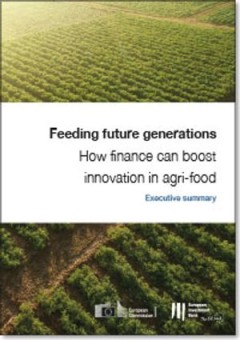
Feeding future generations
The food sector is a strategic part of the European economy, but it faces many complex challenges: The sector is afraid of risk Spending on innovation is low The sector does not use technology adequately The financing landscape is too fragmented To prepare food production for the future, we need more innovation, we must reap the full potential of technology, and we need creative financing.
- Edition
- -
- ISBN/ISSN
- 9789286142383
- Collation
- -
- Series Title
- -
- Call Number
- 650
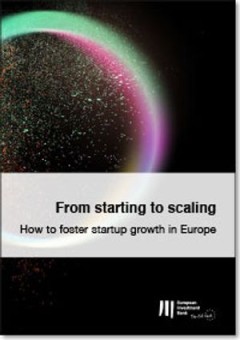
From Starting To Scaling
High growth startups are widely recognized as key sources of employment, productivity growth and innovation. However, while the long-term impact of the COVID-19 crisis on startups remains to be seen, many now face greater constraints than before. Continued policy support for startups therefore remains vital. In order to guide European policymakers, it is important to understand the key characte…
- Edition
- -
- ISBN/ISSN
- 9789286146862
- Collation
- -
- Series Title
- -
- Call Number
- 650
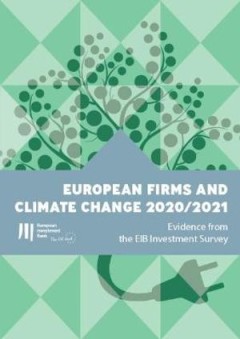
European firms and climate change 2020-2021
- Edition
- -
- ISBN/ISSN
- 9789286150616
- Collation
- -
- Series Title
- -
- Call Number
- 650
- Edition
- -
- ISBN/ISSN
- 9789286150616
- Collation
- -
- Series Title
- -
- Call Number
- 650
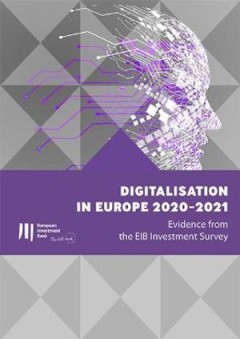
Digitalisation in Europe 2020-2021
Taking an early lead on digitalisation is crucial to Europe’s lasting competitiveness. Our newest digitalisation report sheds light on the state of digitalisation in European countries: The adoption of digital technologies by firms in the European Union is improving, but it has not yet closed the gap with the United States; While some EU countries are at the global forefront of digital transf…
- Edition
- -
- ISBN/ISSN
- 9789286150418
- Collation
- -
- Series Title
- -
- Call Number
- 650
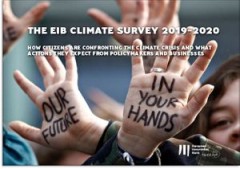
The EIB Climate Survey 2019-2020
The European Investment Bank has launched a large scale survey across Europe, China and the US. Goal of the survey was to find out about: Citizens’ perception about the extent of climate change Citizens’ individual commitments to fight climate change Citizens’ solutions for climate change Responsibility for fighting climate change The findings are particularly relevant at a time when clim…
- Edition
- -
- ISBN/ISSN
- 9789286146442
- Collation
- -
- Series Title
- -
- Call Number
- 650
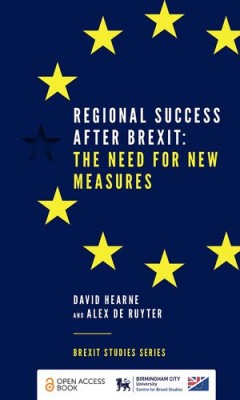
Regional Success After Brexit : The Need for New Measures
The post-Brexit environment introduces notable challenges for regional policy; however, it also offers the opportunity to reassess regional needs and appropriate funding formulae. Regional Success After Brexit: The Need for New Measures examines the metrics currently used to evaluate regional performance within the UK and, in the wake of Brexit, suggests better alternatives. Alongside an in-dep…
- Edition
- -
- ISBN/ISSN
- -
- Collation
- -
- Series Title
- -
- Call Number
- 650

Common Ground
By 2050, three-quarters of the world’s 9.6-billion-strong population will be living in cities – inhabiting vibrant historic cores, commuting from new hinterlands via high-speed transit, or occupying informal urban settlements. Some cities will flourish while others will struggle to meet the demands of a growing population and a changing environment. It will take the collaborative expertise …
- Edition
- -
- ISBN/ISSN
- 9789286143694
- Collation
- -
- Series Title
- -
- Call Number
- 650
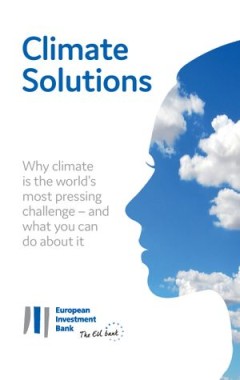
Climate Solutions
Climate change is the biggest threat humanity faces. So big, in fact, that it is sometimes hard to know what each of us, as individuals, can do to counter it. Climate Solutions details the challenges, lays out the solutions and shows you which ones you can make part of your life. Written by experts at the EU climate bank, each chapter helps you figure out what you can do in areas that range fro…
- Edition
- -
- ISBN/ISSN
- 9789286144837
- Collation
- -
- Series Title
- -
- Call Number
- 650
 Computer Science, Information & General Works
Computer Science, Information & General Works  Philosophy & Psychology
Philosophy & Psychology  Religion
Religion  Social Sciences
Social Sciences  Language
Language  Pure Science
Pure Science  Applied Sciences
Applied Sciences  Art & Recreation
Art & Recreation  Literature
Literature  History & Geography
History & Geography